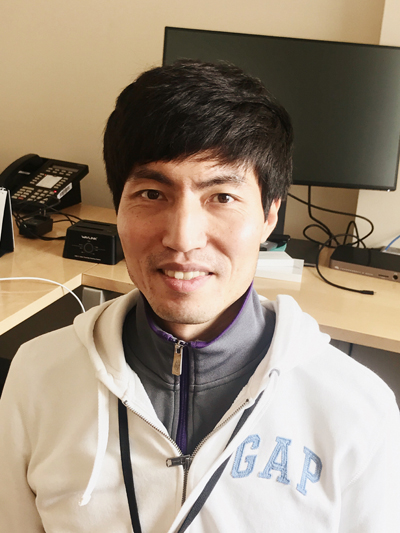Matching the Best Drugs to the Right Patients
Data-driven precision oncology platform show promising results transforming
the way that treatment options are selected for individual cancer patients

[Photo: Prof. Joo Sang Lee from Samsung Medical Center, School of Medicine, Sungkyunkwan University]
Among the patients who have received the same anticancer therapy, some patients are responsive, but others are not. These differences may arise from the patient's diet or lifestyle, but it is widely accepted that genetics plays a decisive role. In recent years, interests in precision cancer medicine, which tailors the treatment for individual cancer patients based on their genetic markup, have grown considerably.
Current precision oncology practice focuses on searching for actionable mutations in a few hundred cancer driver genes. However, the fraction of patients who can benefit from this mutation-based approach has remained quite limited so far.
Aiming to expand the scope of patients that may benefit from precision guided treatments, new efforts have now been made to develop precision oncology approaches based on additional molecular profiles of patients’ tumor including transcriptomics, but the results obtained so far have brought only moderate benefit to patients, as of yet.
Prof. Joo Sang Lee from Samsung Medical Center, Sungkyunkwan University's Medical School, teamed up with Dr. Eytan Ruppin, the Chief of Cancer Data Science Lab at National Cancer Institute to develop a new platform that is aimed to improve the efficacy of precision oncology approaches that analyze tumor gene expression (transcriptomics) data.
The new platform differs from the existing approaches in two important aspects: First, rather than looking at mutations occurring in a relatively small number of genes, the researchers focused on the alterations in gene expression that occur across all genes in the tumor, following recent studies that have pointed to the clinical value of transcriptomic alterations.
Second, a gene interacts closely with many other genes in a cell. The researchers used a novel concept of synthetic lethal (SL) interactions, which denote functional interactions that have a lethal impact on the survival of cancer cells, thus are directly relevant to cancer treatment.
The researchers analyzed a large number of cancer patients’ molecular profiles and performed a large-scale statistical analysis to identify biomarker SL interactions that could predict the therapeutic effect of a given anticancer drug.
The new approach was used by the Lee/Ruppin group to predict which patients will be effective against a given cancer drug, which in turn can help mitigate unnecessary treatments and provide more effective treatment options for patients. To test and validate these predictions, the researchers performed a retrospective analysis of 25 independent clinical trials involving more than 1,200 patients from a variety of cancer types and targeted- and immuno-therapies from different cancer centers around the world. The identified SL network predicts treatment outcome more accurately than existing transcriptomics-based biomarkers.
Furthermore, the new approach can be used to predict the treatment that is most appropriate for a particular cancer patient. A comparative analysis of recent international joint clinical trial (WINTHER trial) based on the new approach shows that the most effective treatment can be offered to more than 60% of patients, which is much higher than the 15% of patients who were reported to benefit from the treatments in the original WINTHER trial.
The results of this study are very encouraging, and prospective clinical trials are currently being designed to verify the clinical validity of this approach. The researchers are now working closely with clinicians at National Cancer Institute and Samsung Medical Center to test the value of the new approach in rigorously designed prospective studies. If these trials are successful, the new approach could offer hope to many cancer patients awaiting novel therapeutic options.
The study was published on February 17 in biorxiv, where biomedical researchers share their findings ahead of time: https://www.biorxiv.org/content/10.1101/2020.02.16.951699v1. For more information about the paper, refer to the author's tweet: https://twitter.com/joo_sang_lee/status/1230022332237807618
